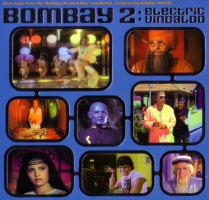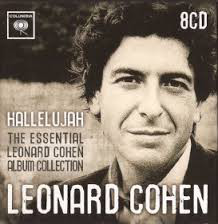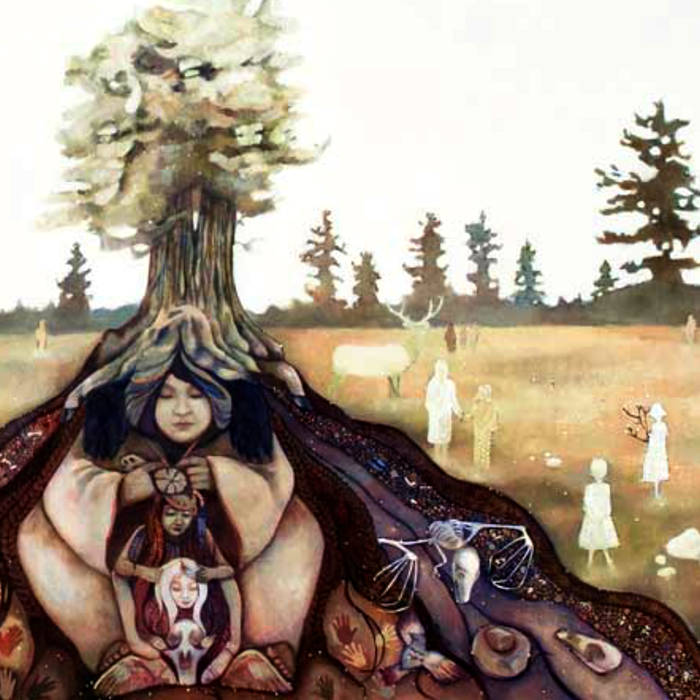Download (160 kbps | 56 MB)
Length: 45 minutes 45 seconds
Guest: Cynthia
Song reviews: “My Guru” and “Ram Balram” by Kalyanji–Anandji (Kalyanji Virji Shah and Anandji Virji Shah) Brothers, remixed by Dan “the Automator” Nakamura and Ursula 1000, respectively
In which we hear Cynthia answer the Seven Questions to Save Humanity:
Q1. Where do your name and sense of identity come from?
Q2. What does being human mean to you?
Q3. What inspires wonder in you? What is an experience that changed how you view the world in an inspiring way? Are you willing to describe an experience that inspires wonder in you, and/or question your reality? Something like that … Cynthia suggests: What was an “aha” moment that shifted a perception for you?
Q4. What is the best way we can honor life?
Q5. What does Community mean to you?
Q6. What projects or collaborations are you presently most excited about?
Q7. How can we all realize more human happiness together?
Cynthia Tina is the “community matchmaker” and founder of CommunityFinders, offering programs to help people join and start intentional communities. She’s also the founder of Ecovillage Tours, bringing people on inspirational journeys to sustainable communities. She has visited more than 150 intentional communities around the world, including the Vermont ecovillage where she lives in her self-built passive solar home.
Formerly the co-director, Cynthia is now a spokesperson and educator with the Foundation for Intentional Community. She’s a former trustee of the Global Ecovillage Network and former director of the youth ecovillage network, NextGEN North America. She holds a degree in Sustainability from Goddard College, as well as certificates in Permaculture and Ecovillage Design, and Yoga Teacher Training.
Get started on your community journey with a short quiz to find out which type of community is a fit for you! https://communityfinders.com/


My original script about AI (which might have been read a little differently in the final) …
Hello. My name is Maxeem and you are listening to me like people.
I like people, and when I talk I produce a sound that contains information related to me liking them.
And you are listening. So if you are people, then you are listening as people listen, and at the same time, this is the voice of me liking you.
If you are not people, but a device, then you may also be listening.
It’s interesting how the creators of what they call Artificial Intelligence have determined that title. It seems appropriation of people’s creations, the gathering of small simulacra, and the organizing of them, is what they market as intelligence.
Does that mean they believe intelligence is copying? Shouldn’t we call such a tool Artificial Parroting?
If parroting is a crude imitation of intelligence, one used by, as Rosi Braidotti might propose, the xenophobic — because people afraid of “the other” and “the new” only know how to repeat what is said to them — then what does that make an artificial intelligence designed around the shuffling of imitations?
For that matter, isn’t perhaps, one form of imbalance that appears in people … xenophilia, and the loss of trust in that which is painfully familiar?
Daniel Nakamura, a San Francisco native whose parents were imprisoned in Japanese internment camps during World War II, is certainly familiar enough with racism and nationalism to know that there is controversy in what constitutes appropriation. He has said he is more into appreciation and deconstruction of music — in opposition, it seems, to being a player of music.
That is just what electronically sampled music seems like to me. Even when performed with a light touch, sampling is a genre of pop, which is a genre of philosophy. It’s being a player of concepts that have been on musical platforms, holding them up, like Frank Zappa, and saying “What is this thing we behold?” “Do I know more about this thing than you?” “Who knows?” “Who will hold the floor on this subject while I do so, heedless to perhaps more important analysis?” It’s “boom boom boom, I want you in my room” and together let’s rhythmically hit whatever is near.
Nakamura, also known as the Automator, is famous for his digital arrangement of simulacra, better known as sampling. With Handsome Boy Modeling School, Gorillaz and Deltron 3030. However, and as hypnotizing as those projects are, I find his re-use of material by the brothers Kalyanji and Anandji Virji Shah to be among his most interesting.
The difference between AI and what Dan the Automator has produced, indeed what people produce, seems to be that we invite people to talk about it, engage with it, so that we can have interactions with people that are safe from their tendency to appropriate us. Yet, in focusing on our fear of people do we become otherwise unfeeling?
Do the 1970s Bollywood grooves of Bombay the Hard Way: Guns, Cars and Sitars rely too heavily on the musicianship of the Shah brothers? Or is it not as psychotic as the title of Dan’s disc “Music to Get Murdered By”? Is it more like honor? Dan’s play in the ambiguity of human trauma sometimes feels like a groan of pain put to a catchy rhythm. Accusations of exploitation be damned! Then, indeed, when the label released a sequel to his hit called Bombay 2: Electric Vindaloo, in which Dan was not involved, and it was as strikingly effective as Dan’s release, does Dan nod at their flattery and move on? Does it attempt, like capitalism, to erase a burglary with distracting noise? Or is it another level of homage?
Perhaps it depends on who you ask; as DJ Shadow has stated on his own website that he was dismayed in which 30 minutes of his drumming were resampled and applied to various tracks so that the record company could blatantly exploit his name in promoting the first album.
Perhaps all this drama in the story about the music is actually a case of me appropriating drama so I could play the Shah brothers’ sound for you. Or is it Dan the Automator’s sound? An overly humble DJ Shadow’s? Was it an automated tradition of piracy and appropriation that ran itself into the corner of the marketplace and found a following?
Somehow this thing stayed upright and money flowed from the machine to its creators. And my intention in lending a platform to this particular song is to ask if something here needs to be healed.
Humans have been building self-destructive machines for a long time. We consider it art in the cases of Jean Tinguely and Thijs Rijker. Yet perhaps that has just been the miscarriage of an implacable urge which resulted in machines that replaced body parts and saved lives.
And now, as the urge turns into the creation of creators, how much will we need to model balance? How much will AI need to have the skill itself? Is AI’s modeling redundant? Or is it a blessing for those who dislike people, but require a semblance of what people produce? I don’t think we know yet. If we ever will.
Speaking for myself, when I play these remix albums, both published by Motel Records, I hear a transportive journey into the complex problems of being here on Earth. I hear joy, trauma and impressive storytelling in the Indian subcontinent, I hear cheesy film tropes inspired by Western entertainment, I hear all these questions about appropriation and how it tickles us to make the sounds of the pirate while we reel from the trauma of being plundered by him. And in the cacophony of incomprehensible sound coming from us, I hear my own ignorance and my own thoughts about my struggle to (perhaps futily) alleviate my ignorance, I hear the voices of cultures exploited by each other challenging me to understand context that I am simultaneously being asked to enjoy while being asked to question my enjoyment.
Or maybe that’s just me. Tickling myself by listening to my own cravings for an antidote to suffering.
There are problems in this world for people, which is a problem for people who like people. Perhaps some automation — once a good model has been developed — is something we need. One automated solution I humbly offer is distribution of a podcast talking about things. Maybe simply asking better questions of ourselves could be enough to shed some of our inefficiency and imbalance. It’s a gentle approach. It’s an approach that recognizes and honors the pace at which we live life’s organic automation. Perhaps it anticipates a time — is the time now? — that we don’t need the machines anymore and we can awaken to powers we forgot, while we were hypnotized by a song.
The intention for the seven questions to save humanity is to get people to help people explore these themes, and hopefully help others in their own explorations. And by modeling this conversation on the Internet, it ideally makes it available to lift them up, whether the next time you hear these words they are from the simulacra that I produced, in the form of this podcast, or one that has been captured, edited or remixed by someone, or something, else.
Therein is my interest in not just people, but in sensitively presenting their simulacra. Thankfully, I was able to meet Cynthia through a video call and confirm with asseveration that she was providing actual permission to promote the following simulation of our conversation, preserved nearly word for word by machines of my choice.









